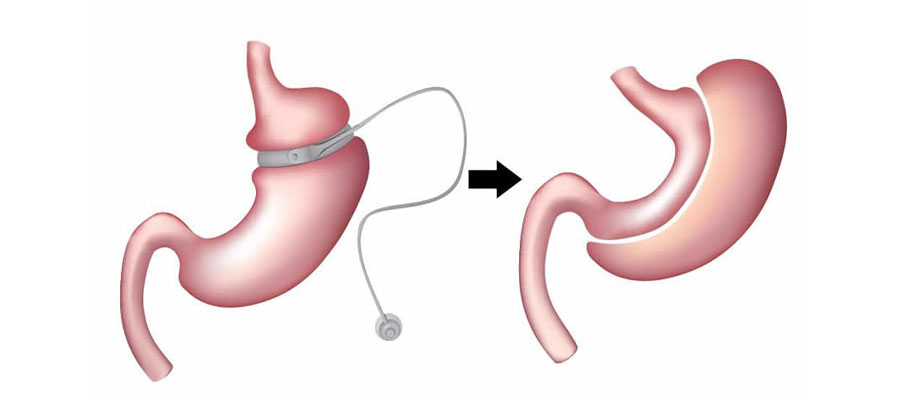
Revision Surgery and 5 Treatment Practices
Obesity surgery has an important place among surgical procedures performed for weight loss. However, sometimes it is not possible to achieve the desired results or some complications may occur after surgery. In such cases, revision surgery comes into play. In this article, we will examine in detail what revision surgery is, to whom and in which cases it is applied.
Definition of revision surgery
This procedure is recommended for patients who cannot achieve the expected weight loss or experience complications after bariatric surgery. Revision surgery aims to make changes to the previous surgical procedure.
The goal of revision
Revision surgery is a secondary surgical procedure performed to eliminate problems, prevent or treat complications that may occur after primary bariatric surgery. Its aim is to improve the quality of life of patients.
The Function of Revision Surgery After Obesity Surgery
Some patients may not achieve the desired results after the initial surgery. In such cases, revision surgery is recommended to optimize the results of bariatric surgery.
Consideration before revision surgery
The patient’s general health status, the complications experienced and the results obtained after bariatric surgery are evaluated to determine the need for revision surgery.
Reasons for weight regain after bariatric surgery
Reasons such as lack of attention to eating habits, insufficient physical activity and metabolic factors can lead to weight gain after bariatric surgery.
Who can not get revision surgery?
Although revision surgery has the potential to solve the problems experienced after bariatric surgery, it is not possible to apply this procedure to every patient. Therefore, patients who apply for revision surgery should be carefully evaluated.
Unsuitable patients for revision surgery
Not all patients may be suitable for revision surgery. In particular, the risks of revision surgery may increase due to serious heart conditions, certain chronic diseases or certain metabolic conditions.
Restrictions and risk factors
When deciding on revision surgery, factors such as the patient’s general health status, medication use, chronic diseases and how long it has been since the previous surgery are evaluated. These factors should be taken into account when deciding on surgery.
Revision Surgery and Application Types
The goals of revision surgery include eliminating complications that may occur after bariatric surgery, optimizing weight loss or applying a new method if the previous surgery has failed. Therefore, revision surgery can be performed with several different methods.
1. Gastric Band Revision Surgery
Gastric banding is one of the methods used in the surgical treatment of obesity. However, in some cases, the results obtained with this method may not be satisfactory. In such cases, revision surgery may come into play.
Function of the Gastric Band
A Gastric band is an adjustable silicone band that is placed on the upper part of the stomach. Thanks to this band, the stomach volume is reduced and a feeling of satiety is achieved with less food. This method is simpler and more reversible than other surgical methods.
Need for Revision and Postoperative Considerations
However, over time, problems such as gastric band slippage, irritation or insufficient weight loss may occur. Such complications may necessitate revision surgery. After revision surgery, it is very important to strictly comply with diet and lifestyle changes.
2. Gastric Bypass Revision Surgery
Gastric bypass is a frequently preferred method in bariatric surgery and is based on the principles of reducing the size of the stomach and bypassing part of the intestines.
Main Principles of Gastric Bypass
By creating a small stomach pouch and bypassing part of the small intestine, gastric bypass both narrows the stomach volume and reduces food absorption. This two-way effect provides effective weight loss. Ideally, with this method, patients can lose most of their postoperative weight.
Benefits and Causes of Revision
However, in some cases, revision surgery may be needed after gastric bypass surgery due to insufficient weight loss or complications related to the surgery. This revision surgery can enable patients to lose more weight or eliminate problems associated with the surgery. The main benefits of gastric bypass revision include better weight management, elimination of postoperative complications and improved quality of life.
3. Sleeve Gastrectomy Revision Surgery
Gastric sleeve surgery is one of the most popular methods of bariatric surgery. This procedure aims to remove a large part of the stomach to create a smaller, tubular stomach. This limits the amount of food patients can take in, resulting in a feeling of satiety more quickly and leading to weight loss.
Advantages of Gastric Sleeve Gastrectomy
Gastric sleeve surgery can lead to rapid and effective weight loss. Most patients experience a significant decrease in appetite after surgery. However, this method can also help treat many obesity-related complications such as heart disease, type 2 diabetes. On the other hand, this surgical procedure is invasive and requires a serious decision and careful follow-up.
Necessity and Possible Reasons for Revision
After sleeve gastrectomy surgery, some patients may not achieve the desired weight loss or may regain weight over time. In addition, some postoperative complications may also be encountered. In such cases, revision surgery may be required. Revision may be in the form of optimizing the original sleeve gastrectomy or applying another bariatric surgery method.
4. Duodenal Switch Revision Surgery
Duodenal switch is a complex procedure used in bariatric surgery. This surgery aims to both shrink the volume of the stomach and reduce the absorption of nutrients.
Advantages of Duodenal Switch
Duodenal switch surgery involves narrowing the volume of the stomach and bypassing a large part of the small intestine. This combination promotes effective weight loss while at the same time limiting the absorption of nutrients. It can be a particularly effective option for morbidly obese patients.
Postoperative Problems and Need for Revision
After duodenal switch surgery, some patients may experience nutrient deficiencies, excessive weight loss or other complications. If such problems cannot be managed with dietary changes or medical treatment, revision surgery may be necessary.
5. Transit Bipartition Revision Surgery
Transit bipartition is one of the newer methods of bariatric surgery. This procedure aims to both reduce the volume of the stomach and bypass part of the small intestine.
Key Principles of Transit Bipartition
Transit bipartition works by shrinking the volume of the stomach and bypassing a specific section of the small intestine. This approach can promote rapid weight loss while at the same time reducing nutrient absorption.
Revision Essentials and Benefits
After transit bipartition, some patients do not achieve the expected weight loss or may regain weight over time. There may also be complications associated with this procedure. In such cases, revision surgery can help optimize the patient’s weight management or address complications.













Thanks to gastric sleeve surgery, the quality of my life has improved significantly. I feel healthier and more energetic.
Dr. Thanks to Mehdi Deniz's detailed information before the surgery and careful follow-up after the surgery, the surgery process was easier than I expected.
Weight loss after gastric sleeve surgery was quite impressive for me. However, I learned that for the process to be successful, I need to exercise regularly and continue to eat healthy.
My concerns were reduced thanks to my doctor's friendly and understanding approach before and after the surgery. He took care of me at every stage of the process and gave clear and concise answers to my questions.